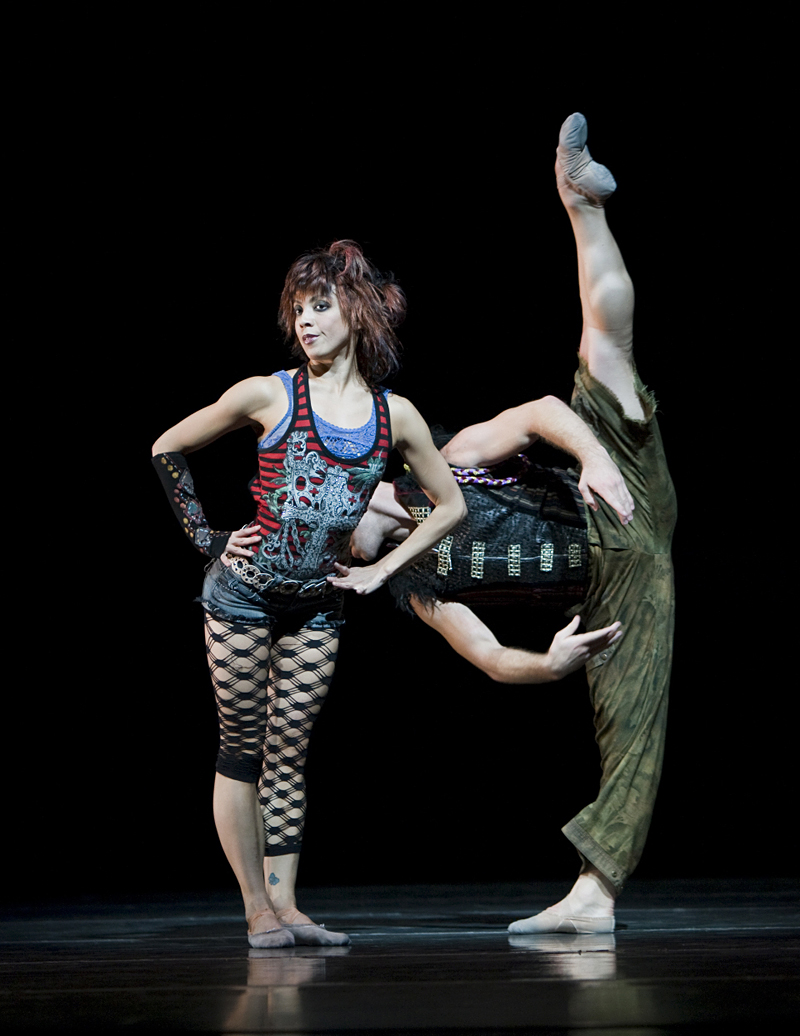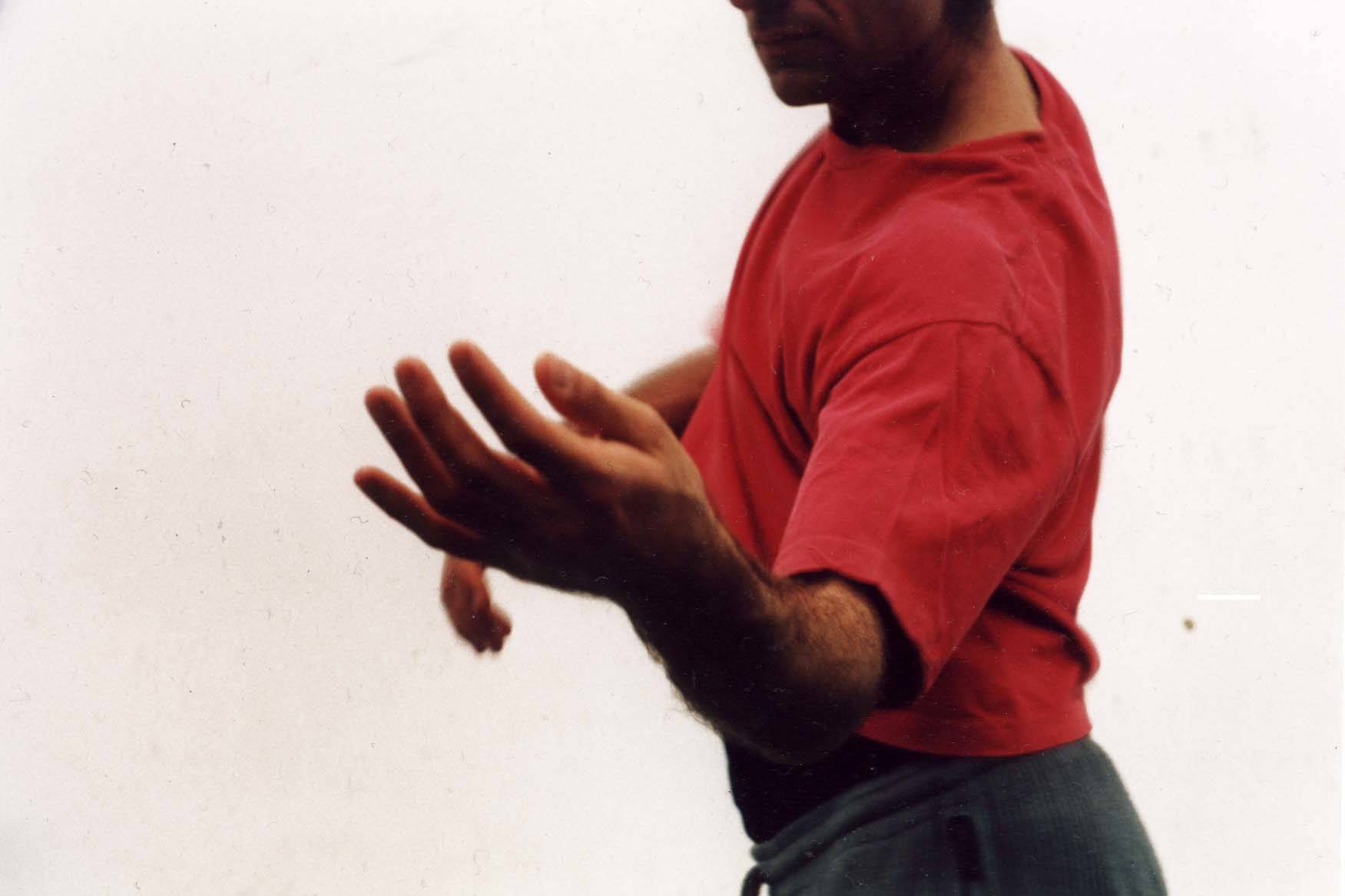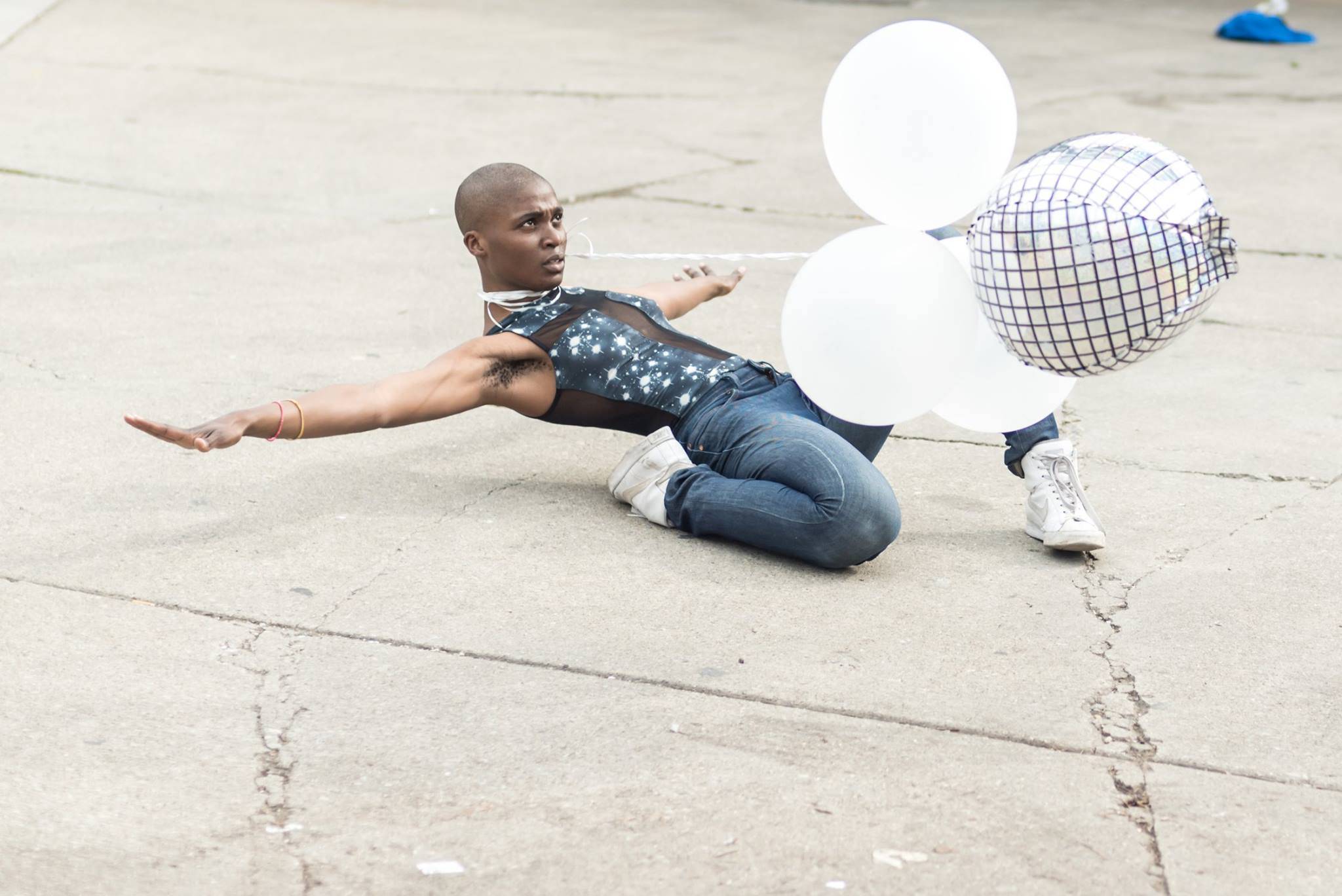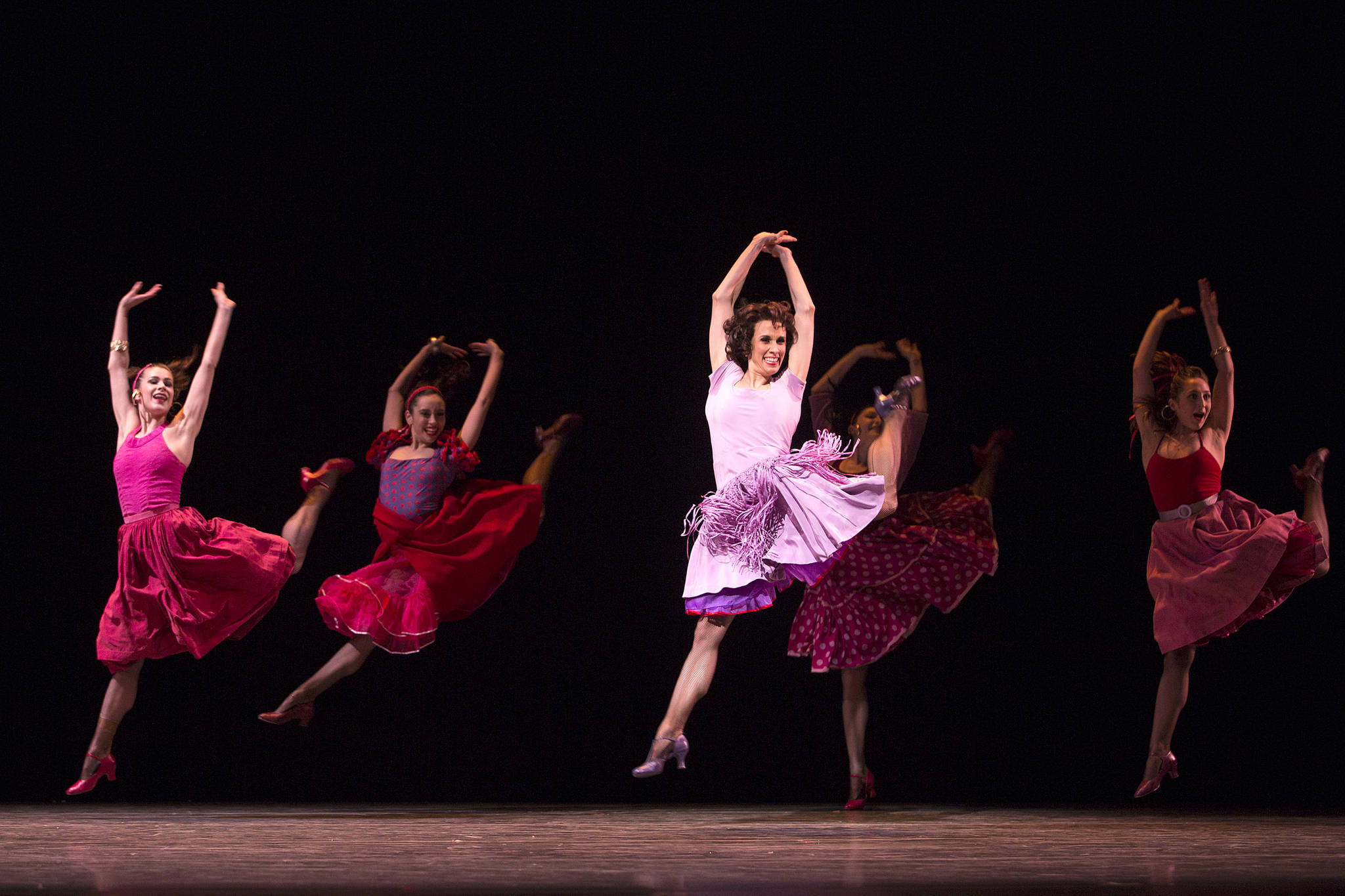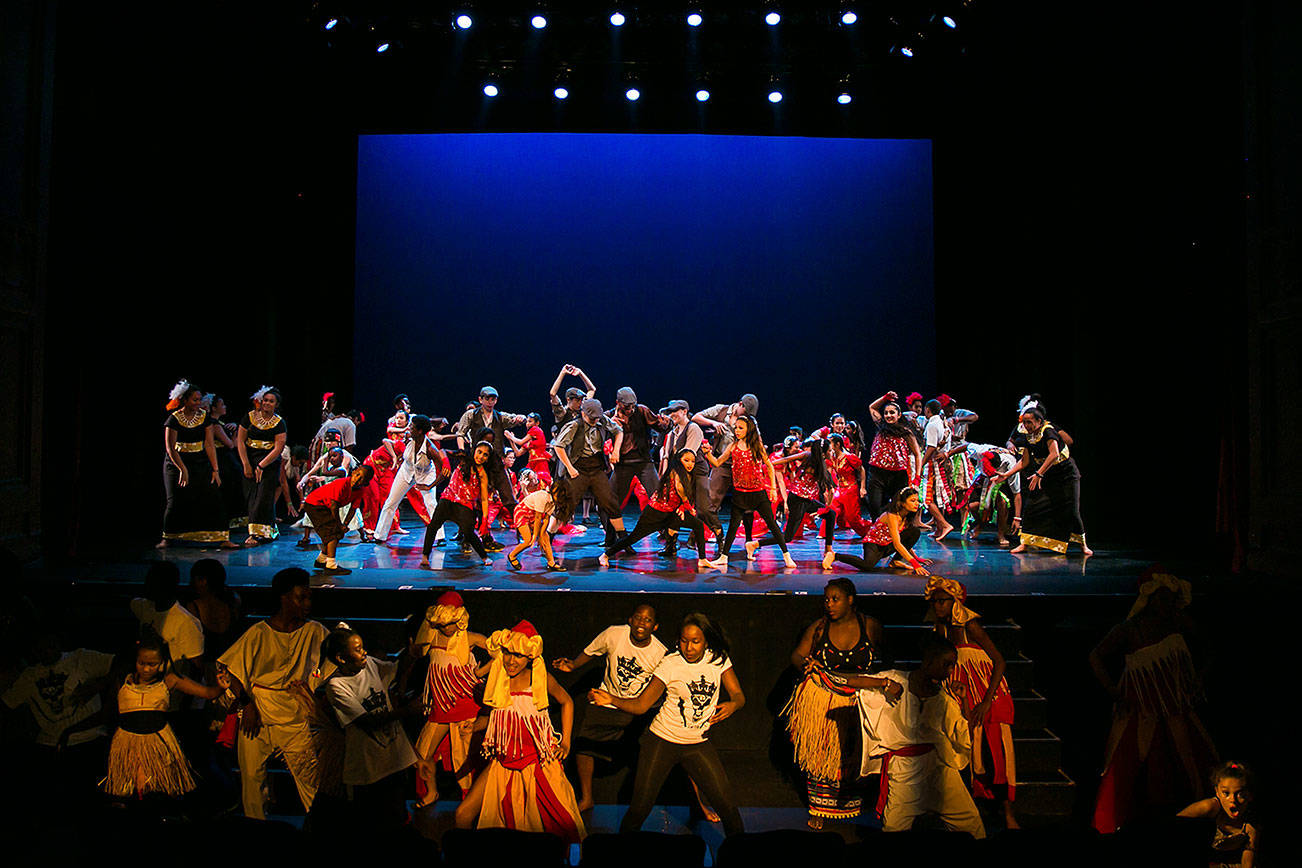Twyla Tharp is the trickiest choreographer working today—or probably any day. Her material is structurally dense and kinetically articulate, qualities often identified as classical; but the stuff that it’s made from can be downright kitschy. Her movement is laced with old vaudeville routines, tap-dance standards, and square-dance steps, but it also draws from the grandly virtuosic, often at the same time. It can evoke an almost spiritual emotional response, right after you’ve snorted at a pratfall. She will poke fun at the conventions of ballet while creating an elaborate etude using that very material.
Dancers will swear that they never work harder than in her choreography, but to the audience it seems grand rather than grueling. Opus 111, set to Brahms and made for PNB two years ago, is packed with very tricky changes of direction and somersault lifts; and in the 1994 Waterbaby Bagatelles, which closes this PNB program, dancers spin across the stage in the tightest of chaîne turns while rolling their heads in counterpoint.
Afternoon Ball, also from 2008, makes its biggest impression with a set of intensely dramatic roles—a trio of street kids whose connection to reality is tenuous at best. But even here the physical challenges match the theatrical ones. When PNB started performing Waterbaby in 2006, this alternate virtuosity was a real stretch for the ensemble, but the classical references were tight. Ironically enough, at last weekend’s performances the only real weak spots were the traditional tasks of a tidy corps de ballet: straight lines and even placement.
Tharp’s work is becoming the gold standard for ballet companies looking for crossover appeal—in 2010 alone, the foundation that administers her repertory has contracts with 18 separate companies to perform something of hers. In the Kylián works from PNB’s previous program, all the “jokes” were references to European cultural history—lots of commédia characters and slapstick with powdered wigs. Tharp’s vocabulary comes from America, from the Katzenjammer Kids and city streets. The work has special potential for a company looking to expand its audience. But as PNB leader Peter Boal continues to go outside the canon, will the group also reach a point where it can’t do a credible performance of a traditional ballet?
